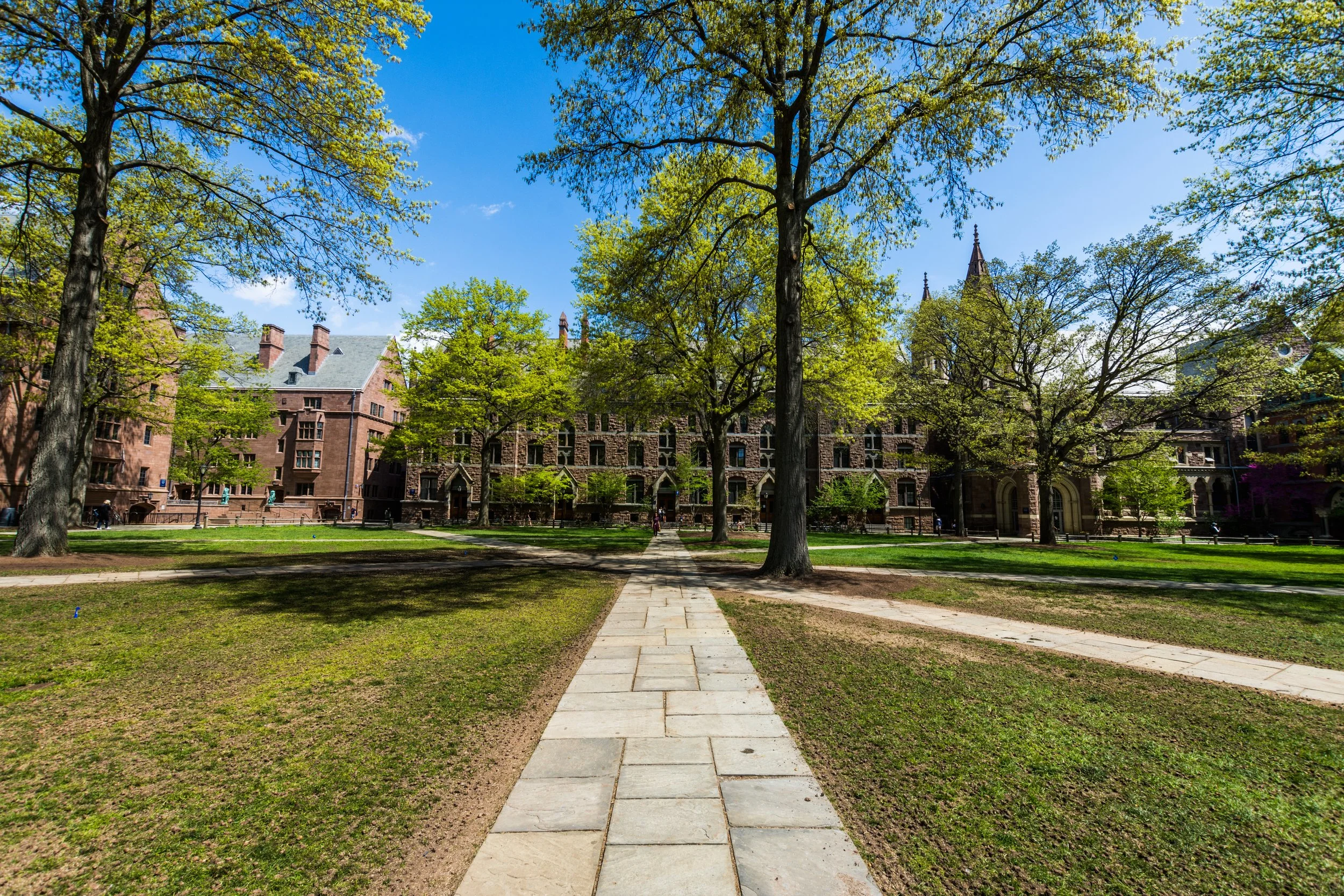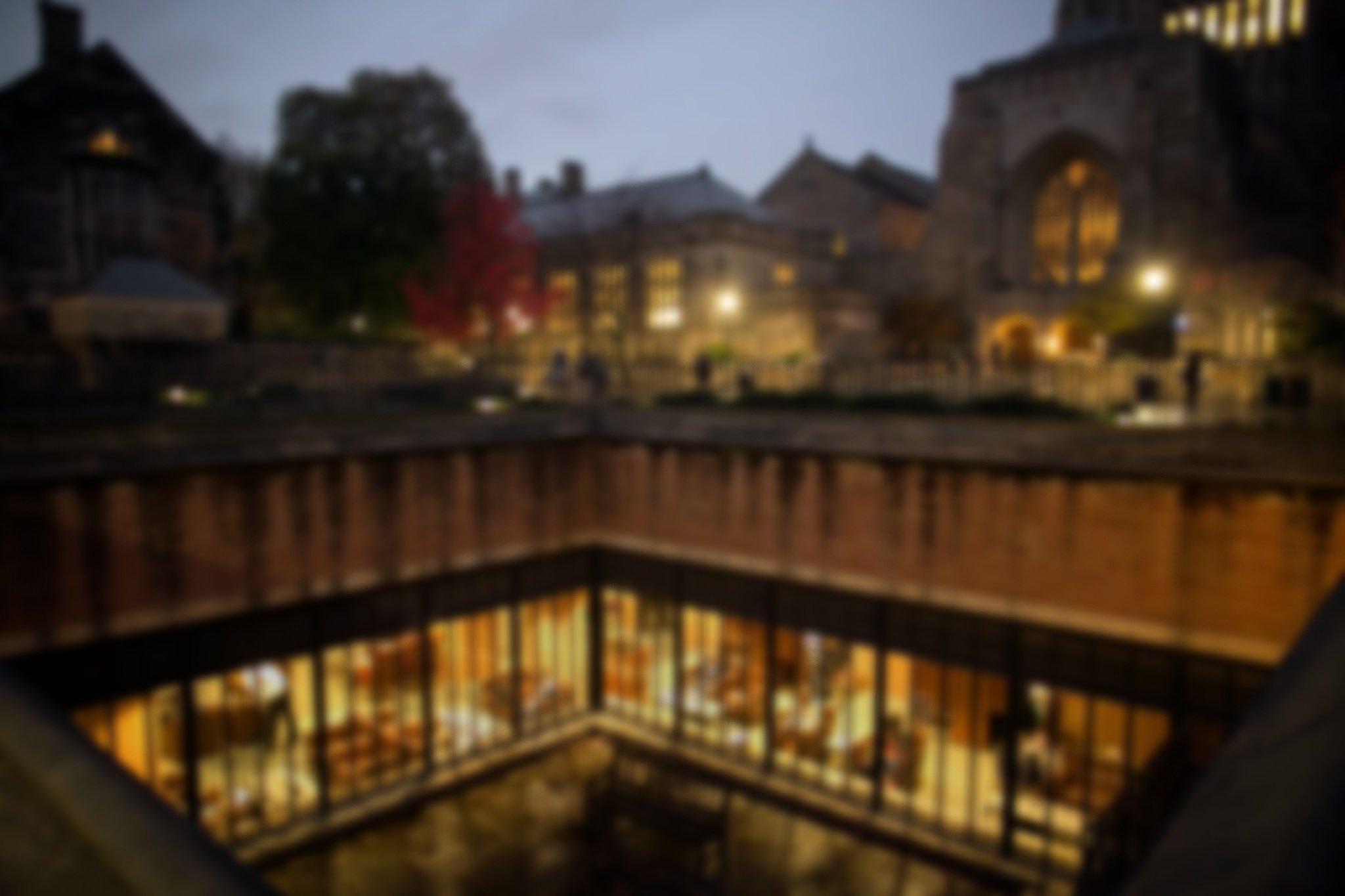
Path Perspectives
Path Perspectives is a collection of articles written by our mentors, offering firsthand advice on college admissions, balancing academics and extracurriculars, and finding the best path to your dream school. Each piece shares a unique, personal perspective you won’t find anywhere else, helping students and families navigate the process with clarity and confidence.
Academic Success
College admission officers have three sheets of material to judge your entire existence. Your resume, transcript, and teacher recommendations can only say so much about your life and interests…Things to keep in mind when writing your Common App and UC Essays.
The golden rule everyone kept throwing at me was: “Have your REACH schools, your MATCH schools, and your SAFETY schools.” It was confusing at first. How am I supposed to know if something’s a “reach” until I get rejected? But once I dug and started to make my college list, it started to all make sense.
College essays are unequivocally the most important part of your college applications. This post introduces three exercises to help you begin brainstorming your essays.
During my Junior year of high school, my father gifted me a 800 page book listing nearly every college in the United States. Sitting before this enormous book, which was nearly too large for me to carry, I felt incredibly overwhelmed.
Attending office hours is one of the best ways to enhance your college experience and academic success. This blog dives into why making time for office hours can improve your grades, help you form strong relationships with professors, and support your future career or grad school plans.
Fast forward to the actual exam, and the results were astounding. I remember actually looking forward to the reading section, no longer intimidated by long, complex passages or the daunting time limit.
As college decision letters arrive for most high school seniors, the question of how to evaluate various offers and exciting opportunities is often raised.
As a high school student, I dreamed of the day I would open my college decision letter and see the words “Congratulations!” Sometimes, though, the message isn’t what you hoped for…
What do you do when you need to study for a subject you don’t understand? Or simply, don’t like? Look to these study strategy tips!
There are hundreds of colleges in the US and even more abroad—so how can you begin to know where you want to apply?
Due to COVID-19, colleges and universities are changing their admissions criteria. Some schools, like Cornell University and Harvard University, are waiving the SAT or ACT for admission, due to the difficulties in taking the exam. Some students may not have access to the resources needed to study for the exam or even have a place to take it as test centers around the country stay closed. This change is unprecedented so no one really knows how this year’s admissions will turn out. However, there are still some things that students can do to prepare for this change.
When I started my freshman year of high school, I noticed that a lot of students would take advanced placement (AP) tests for classes in which they were not in (or that they were in the pre-AP or honors version of the class that did not have an offered AP class at my high school). I thought that was peculiar at first, but then I realized that was honestly a smart thing to do. Read further, and I will explain why.
Human beings are storytellers. Look around and you’ll see stories everywhere. Game of Thrones? A story. Call of Duty? A story. That huge billboard you drive by every day? The conversations you have with your friends? The warnings you tell your children? Stories. We make sense of the world and our own lives through narrative. Every experience that we have as human beings becomes integrated into our personal stories. The ones that we remember well, or that led to something significant, become part of our life story.
In most top colleges’ supplemental essay portion, the first prompt is usually the “why us?” question. Although it sounds like a question that colleges use to flatter themselves, what are college admissions committees actually trying to know about students through this question?
My journey to MIT began at age 16 while in high school in Jamaica, where I was born and raised. Through random circumstances, I had discovered MIT online and the school immediately captivated me. At that moment I decided “I’m going to get into MIT.”
After spending countless hours planning, writing, and editing your applications, you finally hit the submit button and you wait. However, an aspect many students forget in the college application process is the interview process. (Don’t fret if you don’t get an interview, as it largely depends on how many available alumni have volunteered to interview students in your area as well as how many students have requested an interview.) However, if you are given a chance to interview, take the opportunity.
It’s that time of the year again. For many, summer is a time to relax being off from school for several months; for others, it’s a time to get even more work done in preparation for college admissions looming ahead. How should you spend your summer vacation as a high school student aspiring to attend an elite college?
What if I could tell you there was one thing that would help you boost your grade, strengthen your letters of recommendation, and help you figure out your future? There is! Office hours.
What few things most often lead to an elite college acceptance?College admissions officers have a limited amount of time to decide which applications warrant an acceptance. There are a couple of necessary requirements to maximize your chances.
Extracurriculars & Passion Projects
I used to think summer was for checking out, ignoring the planner, and just floating through July like a pool noodle. And for a few summers growing up, I did exactly that. But what I didn’t realize until later was that summer can be the most powerful stretch of the year.
An article in The Atlantic recently caught my attention: The Elite College Students who Can’t Read Books…
You often hear, “make the most of summer” — but what does that mean, and how do you begin?
For any high schooler with dreams of attending an Ivy League or top-ranked school, my advice is simple: Get out of your comfort zone. Start that club, join that team, and take on those leadership positions.
What happens when a student gets to do a project they’re passionate about? In the case of a real, Bay Area high school student like this, he was able to change his life and find his real passion through Path Mentors Co, an education company for high school students to work with recent Ivy League graduates on projects they’re interested in.
Sometimes, becoming the best student you can be means choosing what you are passionate about with strategy.
For me, founding a club in high school is one of the most rewarding and memorable experiences that I can remember.
Due to quarantine and reduced school and work hours, students may be finding themselves with more spare time than usual. Staying healthy should be your top priority, especially since the US has higher rates of young adults contracting COVID-19 than other countries. Staying healthy includes taking care of your mental health. In this tumultuous time, it is totally okay to focus on yourself. Colleges and schools will be understanding if you focus on taking care of yourself during this time instead of on your resume.
My first year of high school, I joined the Service-Learning Team, a group that spent Tuesday afternoons at local elementary schools leading enrichment activities and spent Thursday afternoons discussing the socio-political components of our relationship with the students: underfunding of private schools, the cycle of poverty, and so on. I strongly believed in the mission of the group, but the work itself wasn’t for me—I wasn’t very good at arts and crafts or soccer, and I didn’t have a natural rapport with young children. So I made a decision that would ultimately come to occupy the majority of my free time in the next four years: I met with the director of the program, our school’s ethics teacher, and suggested we expand our outreach. In other words, I saw a missing piece, and I suggested how to fix it.
For U.S. college applications, there are many components that determine their success. Of course, your grades are paramount and without passing the requisite thresholds, most other things won’t matter. However, if you have been able to get decent grades, then it becomes very important to consider the other aspects of your college application.
One of the hardest parts of high school is balancing everything that is happening. People often joke that you cannot “do it all”, and realistically, you cannot while still maintaining your health, friendships, and happiness. The way around this is learning how to combine things to kill two (or even more) birds with one stone and be opportunistic with your environment.
Community service is a great way to help others and improve your local community. It can be an avenue to build on or develop new skills, feel great about your contributions, and develop interests and passions into tangible results. From a college-admissions perspective, admissions officers want to see that you take deep dives into your interests (that relevantly have a community service aspect) and are able to create an impact in your community and even beyond. Today, we’ll talk about how you should go about thinking about your community service.
The value from a lab comes from understanding what you are doing on the day to day. By understand I mean you should be able to explain to anyone in simple terms the background of your research, how your research is new, and how your experiments work. There is no point in joining a lab just to shadow someone as a passive observer. This will not yield a memorable essay because your passivity will be reflected in the quality of your writing about the experience. To really get something out of a lab experience, you need to be active. Don’t be afraid to ask questions and always be asking if you can help with anything.
In the United States the university system is a business. Butts in seats mean tuition in the bank, means bigger buildings, nicer facilities, better professors, and more butts in more seats. Getting students to enroll requires offering a peak college experience - the best educators, the most interesting classes, and the most beautiful campuses. But what makes college a true peak experience for the best of the best? What sets one stunning campus green apart from another?
Mindset & Personal Growth
Summer is the perfect time for high school students to explore interests, try new experiences, and reflect on future career paths.
Getting into the college that you wanted was probably the most paramount focus you had during the past few months.
High school is not just a place to gain knowledge; it can also be a place where you can cultivate meaningful relationships with your teachers and mentors. These relationships can prove to be instrumental when it comes time to apply for college. A compelling recommendation letter can make your application stand out from the rest. Here's a guide on how to build strong connections with your high school teachers while also securing a stellar recommendation letter.
Both my parents worked 9am–5pm jobs, so I took on the responsibility of picking up my younger brother from elementary school each day. This duty, though seemingly simple, was seriously hard to implement into my daily schedule as a busy and overwhelmed high school student with dreams of attending a top university. I remember pleading with my parents to find some other solution for picking up my brother but there wasn’t any. Despite this added responsibility, I still managed to thrive as a varsity athlete, be an active leader of my school's art club, and ultimately secure admission to Brown University.
High school is a period marked by profound changes and opportunities for growth. For someone like myself, who started as a quiet introvert in and out of the classroom, the idea of evolving into a confident and outgoing person in my daily activities seemed almost unthinkable. Yet, my own path, marked by the hurdles of language barriers and doubts, shows that with the right mix of chances, support, and attitude, anyone can turn into a leader.
In the stress of life, it can be easy to forget that it's the people in your life who make the greatest impact on you. A true mentor can teach you far more than the SAT ever will - the mentors we have and the lessons they teach us stick with us throughout life.
Some people grow up knowing exactly what they want to do in life and stay close to a certain path. Some people grow up having very little idea of what they want to do, and then end up stumbling upon a path that becomes their calling.
As a 1st generation immigrant with no immediate family friends and relatives in America to look up to, I was fortunate enough to have found someone who had similar interests and background as me to basically be my mentor.
My choice of friends has had a far greater impact on my life than any other decision I’ve made. My friends have inspired me to pursue my interests, taught me critical soft skills, supported me through difficult times, and most importantly — they continually push me to strive to be the best I can.
Without a doubt, COVID-19 this past year has ravished the world in unprecedented ways. The pandemic has affected virtually all aspects of life, from personal to professional to academic. Many normal behaviors such as handshakes and hugs have now been restricted or disallowed by governments. Although the responses have varied much globally, I am most familiar with what has happened here in the United States. Particularly, I want to focus on what has happened to U.S. universities and how it will affect college admissions for those involved. Mainly, I want to explore the new reality for students applying, how admissions staff will have to respond, and the potential long-term results of COVID-19 on higher education.
It can feel hard to work on your project in the midst of global and local uncertainty. The first thing you should do is recognize that there are no wrong ways to react to the corona virus and that everyone handles stress differently. But there are a few other things to bear in mind...
As a Chinese American woman I experienced this all the time. When I was little, my parents pushed me to study math and the sciences. I happened to be good at and enjoyed the attention that I got from being good in the STEM fields. As I grew older though, I grew tired of how people who did not even know me assumed that I was good at STEM. I started to realize people were categorizing me, my interests and career goals before even getting to know me.
There is for sure one thing in common you hold with a lot of the top students in your high school (amongst the other obvious ones like you are all human go to the same high school, and other small obvious things), you all probably want to go to a good college!
My journey to MIT began at age 16 while in high school in Jamaica, where I was born and raised. Through random circumstances, I had discovered MIT online and the school immediately captivated me. At that moment I decided “I’m going to get into MIT.”

What Can You Picture Yourself Doing?
Summer is the perfect time for high school students to explore interests, try new experiences, and reflect on future career paths.

In Search of What You Have
I fell asleep the other day under the shade of the bodhi tree…

Managing and Growing your Relationship with your Parents in College
Getting into the college that you wanted was probably the most paramount focus you had during the past few months.

Nurturing Relationships for Stellar Letters of Rec
High school is not just a place to gain knowledge; it can also be a place where you can cultivate meaningful relationships with your teachers and mentors. These relationships can prove to be instrumental when it comes time to apply for college. A compelling recommendation letter can make your application stand out from the rest. Here's a guide on how to build strong connections with your high school teachers while also securing a stellar recommendation letter.

On Academics, Athletics, Art, and Family Responsibilities
Both my parents worked 9am–5pm jobs, so I took on the responsibility of picking up my younger brother from elementary school each day. This duty, though seemingly simple, was seriously hard to implement into my daily schedule as a busy and overwhelmed high school student with dreams of attending a top university. I remember pleading with my parents to find some other solution for picking up my brother but there wasn’t any. Despite this added responsibility, I still managed to thrive as a varsity athlete, be an active leader of my school's art club, and ultimately secure admission to Brown University.

Growing Through Discomfort
High school is a period marked by profound changes and opportunities for growth. For someone like myself, who started as a quiet introvert in and out of the classroom, the idea of evolving into a confident and outgoing person in my daily activities seemed almost unthinkable. Yet, my own path, marked by the hurdles of language barriers and doubts, shows that with the right mix of chances, support, and attitude, anyone can turn into a leader.

Embrace Your Unique College Journey with Less Stress and More Clarity

A True Mentor Can Change Your Life
In the stress of life, it can be easy to forget that it's the people in your life who make the greatest impact on you. A true mentor can teach you far more than the SAT ever will - the mentors we have and the lessons they teach us stick with us throughout life.














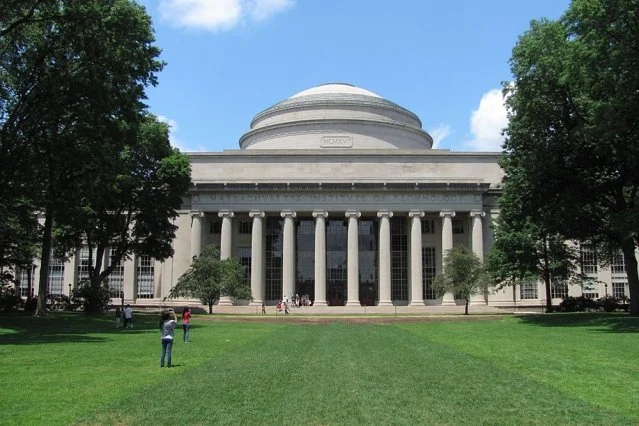

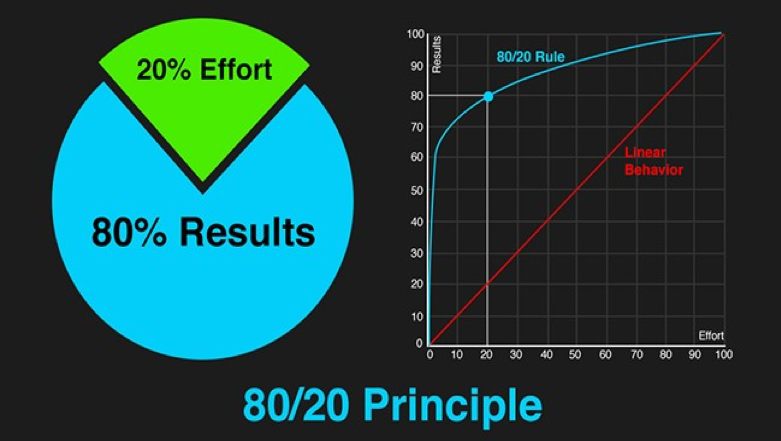


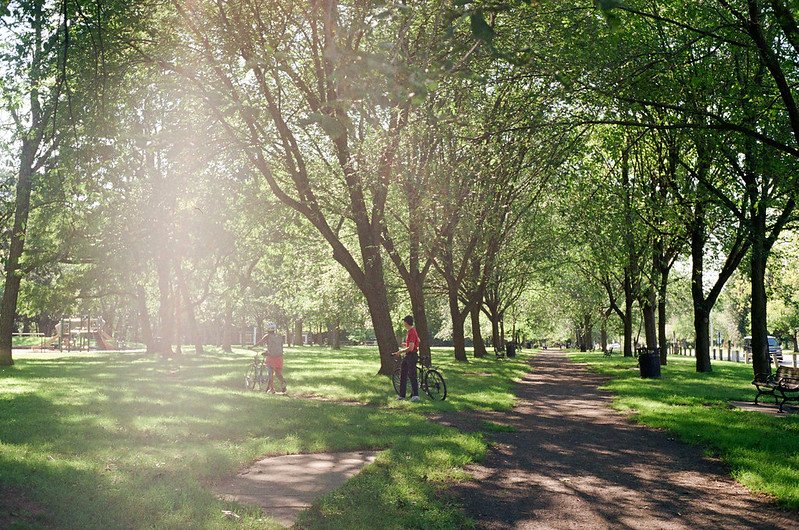










![How to Stand Out as a Good [Multi-Tasking] Student](https://images.squarespace-cdn.com/content/v1/686f16efce85687b132c6309/1752110867523-OT1BKATMDPB6B0D030GK/PINK_50.jpeg)










